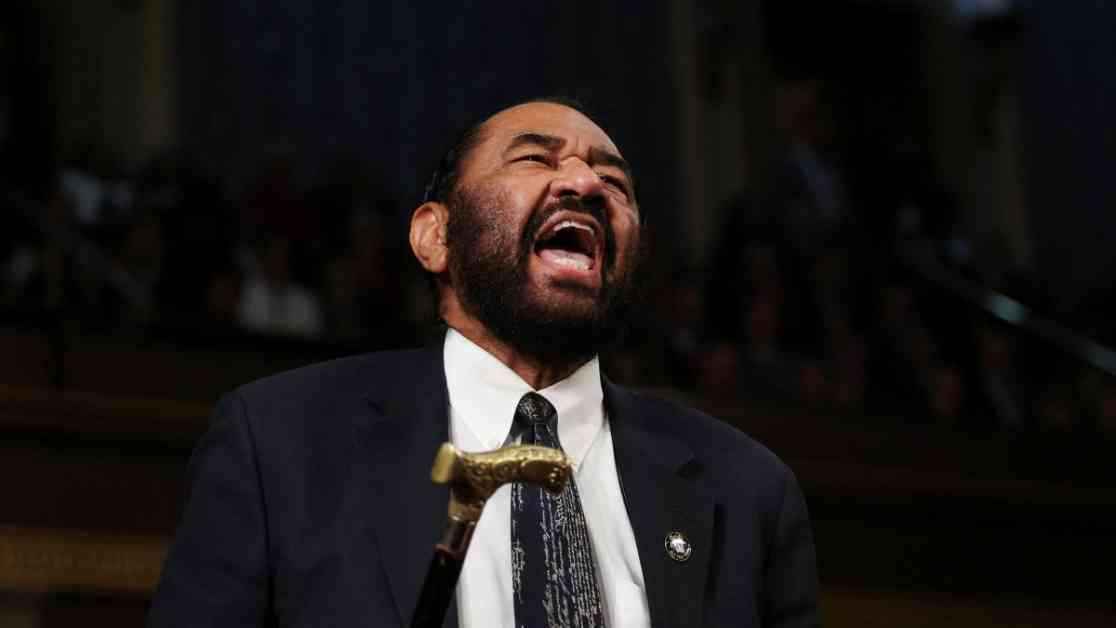During President Donald Trump’s address to a joint session of Congress, a disruptive incident unfolded, leading to the removal of Democratic congressman Rep. Al Green from the House chamber. As the President began his speech, touting the November 5th election as a significant mandate, Green took issue with Trump’s assertion. In a bold move, he stood up, cane in hand, and defiantly shouted, “You have no mandate!” The tension escalated quickly as Republicans rose to their feet, drowning out Green’s protests with chants of “USA! USA!”
In a dramatic turn of events, Speaker Mike Johnson, a Republican from Louisiana, demanded that Green cease his disruptions and take his seat. When Green persisted, Johnson took the decisive step of ordering the House Sergeant at Arms to remove him from the chamber. Amidst a chorus of cheers from Republican members, Green was escorted out, with cries of “Get out!” and “Goodbye!” echoing in the chamber. Green’s final outcry, “You have no mandate to cut Medicaid!” rang out as he was led away by police.
Rep. Al Green’s removal from the Congressional address shed light on the deep political divides that continue to shape the current landscape of American governance. As a vocal critic of President Trump, Green’s actions were not entirely surprising, given his history of filing articles of impeachment against the President.
Expert Analysis on Political Disruptions
Political disruptions, such as the one witnessed during President Trump’s address, are not uncommon in the high-stakes arena of Capitol Hill. According to political analyst Dr. Sarah Thompson, “These moments of tension and discord are symptomatic of the deep-seated ideological differences that define our current political climate. While disruptions may grab headlines, they also underscore the challenges of fostering meaningful dialogue and cooperation across party lines.”
Dr. Thompson’s insights shed light on the broader implications of disruptive incidents like Rep. Al Green’s removal from the Congressional address. As the nation grapples with polarizing political debates, finding common ground and fostering productive discourse remains a significant challenge for lawmakers on both sides of the aisle.
The Impact of Political Rhetoric on Congressional Proceedings
The clash between Rep. Al Green and President Trump underscores the power of political rhetoric to inflame tensions and escalate conflicts within the hallowed halls of Congress. As rhetoric becomes increasingly polarized, the potential for disruptive incidents to occur during key political events grows, posing a challenge to the decorum and civility that traditionally define Congressional proceedings.
In the aftermath of Green’s removal, the lingering echoes of his protests serve as a stark reminder of the fragility of political discourse in today’s hyper-partisan climate. The need for respectful dialogue and mutual understanding has never been more critical, as lawmakers navigate the complex terrain of governance in an era marked by division and discord.


